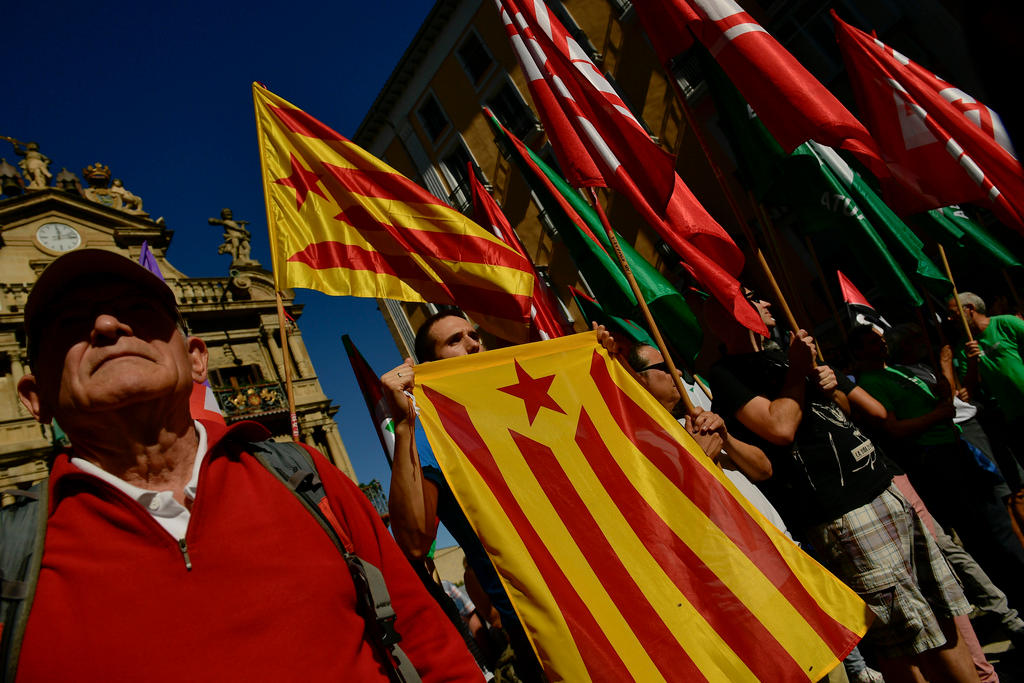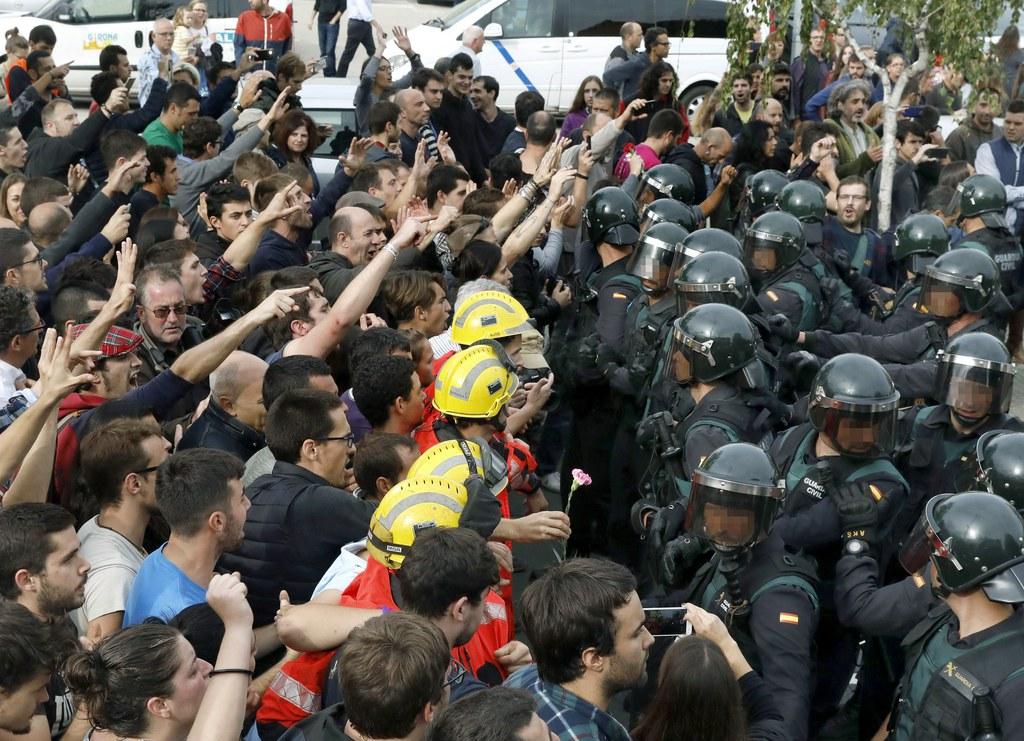Catalonia risks becoming the next Hong Kong or Kurdistan

While the Spanish government offered a violent reaction similar to that of the Chinese Communist Party to the legitimate autonomy of Hong Kong, Catalan leaders engaged in unilateral behaviours unworthy of a modern democracy. The ongoing Spanish tragedy of democracy is above all a crisis of its unfit leaders.
The images splashed across the world’s media last weekend from Catalonia – one of Spain’s autonomous nations — were heartbreaking: peaceful voters in Barcelona and many other towns across Catalonia were bludgeoned and shot by federal police forces unable to speak the local language.
More than 800 citizens were injured as the Spanish central government ruthlessly tried to prevent one of its regions from deciding its own future. “Nothing has happened in Catalonia. There was no referendum today,” claimed Spain’s erratic Prime Minister Mariano Rajoy after one of the most disastrous days in the 40-year history of Spanish democracy.
True, the October 1 voting was not legally sanctioned by the central government in Madrid. It thus stands in contrast to the recent independence vote in Scotland, where 55% of participating voters decided to not leave the United Kingdom. There, the national government of Scotland and its counterpart in London agreed on the rules of game.
This article is part of #DearDemocracy, a platform on direct Democracy issues, at swissinfo.ch.
The Catalan government’s decision to go ahead with the poll, in the absence of a legal agreement, was a recipe for failure. It is a form of constitutional unilateralism that does not fit within a modern democratic context.
Other cases of unilateral votes often take place in war-plagued autocratic regions — like the September 25 popular vote on establishing an independent Kurdistan in Northern Iraq or the forced 2014 vote on the “independence” of Crimea, which just days later was followed by Russian annexation.
Many anachronisms
So why did a seemingly modern state like Spain (and possibly an even more advanced nation like Catalonia) fail so thoroughly when it came to applying democratic principles?
Some reasons may be found in the country’s violent history and the corrupt traditions of its leaders. While most of the 47 million citizens of the Spanish state, which includes 7.5 million Catalans, are seen as modern democrats, the country’s inflexible and centralising constitution does not match its modernisation.
This lack of a modern governing document is the product of a delay after the Second World War. While fascist regimes ended in many countries, Spain’s fascist government survived another 30 years until the death of General Francisco Franco. His totalitarian approach to society created deep wounds in many parts of the multi-cultural and multi-lingual country, including Catalonia, where he suppressed the regional language for decades.
While Franco is long gone, his mentality lives on in Madrid, where leaders challenge many forms of local and regional democracy. The violent reaction to the referendum, directed by Rajoy himself, can only be explained by outdated beliefs and his desire to distract his own voters from recent corruption scandals.
A hard time to stay brave
Unfortunately, Catalan leaders have not been much more credible democracy-wise: for decades the region’s leaders, while promoting autonomy and independence, kept black accounts in tax havens so they could be paid in secret.
Today’s younger generation of leaders unwisely opted to escalate the drama with Madrid by holding an illegal referendum on October 1. In such times, as irresponsible leaders pour more oil on the Spanish-Catalonian fire, it’s hard to stay brave.
But some have managed it; one of the most impressive figures in the events of recent days is the 43-year-old mayor of Barcelona, Ada Colau.
The former citizen activist elected city leader in 2015 resolutely opposes Catalan state independence but is also a resolute promoter of local and regional self-determination. She was among the more than 170,000 no-voters in the October 1 referendum, which saw a yes-share of almost 90%.
Because of the violent reaction by the central state authorities, Colau called on Prime Minister Rajoy to step down. It would certainly be an important step in the right direction, as Rajoy symbolises not only the corrupt political elite but also Spain’s inability to adapt itself to fit a modern European political context.
Craziness is not entirely Spanish
Catalan Prime Minister Carles Puigdemont has announced plans to declare independence “within days”. But the October 1 vote, illegal and disrupted, does not represent a clear expression by Catalan citizens to leave the Spanish state.
Most voters did not vote at all.
The pro-independence parties have no majority (just like Rajoy’s conservative party, which has just 134 out of 350 seats in the national parliament) and thus no democratic mandate to break up the Spanish situation.

The only way forward is compromise and dialogue. Luckily there are new kind of leaders available, such as Colau in Barcelona, and useful constitutional processes that could be brought to bear. Back in 2006, the Catalans approved — in a fully legal referendum — their own basic law with several democratic innovations, including provisions for citizens’ initiatives to establish laws.
This was rightly seen as a great step forward for Catalan self-determination — until the day of Rajoy’s election at the Spanish state level. He referred the Catalan “Estatud” (statute) to the (politically rather biased) highest court of Spain. The judges then cancelled the Catalan democratic referendum and started a vicious cycle, which climaxed in the crashed referendum on October 1.
Today, the people of Spain and Catalonia face remarkably similar questions. When will they be able to elect leaders again who will limit conflict, restore democracy, and avoid turning this region of Spain into some cross between Hong Kong and Kurdistan?

In compliance with the JTI standards
More: SWI swissinfo.ch certified by the Journalism Trust Initiative


You can find an overview of ongoing debates with our journalists here. Please join us!
If you want to start a conversation about a topic raised in this article or want to report factual errors, email us at english@swissinfo.ch.